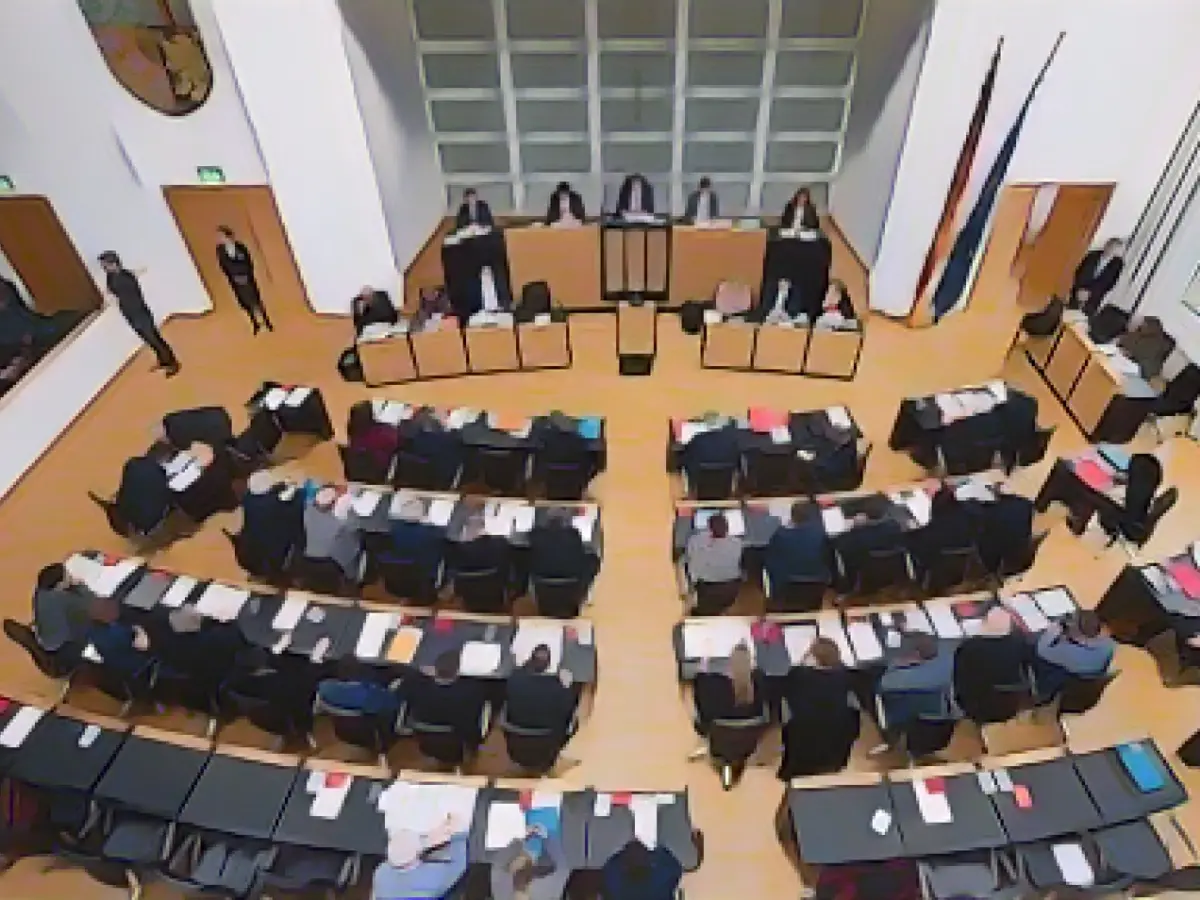Saarland's Parliament Pumps Up Budget and Declares Financial Emergency
In a special session held in Saarbrücken, Saarland's parliament approved a whopping double budget worth nearly 12 billion euros for the years 2024 and 2025. Simultaneously, they declared a financial emergency for the previous two years, 2023 and 2024. The social democratic (SPD) coalition government sought this double budget in an attempt to preserve access to a transformation fund of 3 billion euros, embattled by the debt brake.
This declaration of emergency came in response to the hardships caused by the Covid-19 pandemic and the Russian invasion of Ukraine. The state parliament also swiftly adopted a supplemental budget for 2023 just before the year-end, abiding by the stricter requirements set by the Federal Constitutional Court regarding the use of the debt brake.
The CDU opposition opposed the double budget but abstained from casting their vote on the financial emergency situation. Stephan Toscani, the CDU parliamentary leader, warned that the government was "dancing on thin ice." Nevertheless, they assumed that the thin ice would withstand their criticism. The AfD was equally skeptical about the financial stability of the state, with Joseph Dörr, their parliamentary leader, fearing that the ice might crack at any moment.
The special session of the parliament became crucial for releasing 780 million euros from the transformation fund in 2023. This was part of the total funding of 2.6 billion euros for the green transition of Saarland's steel industry. In addition to strengthening the steel industry, the transformation fund would also support other ambitious projects such as the establishment of a chip factory, battery production, and a successor to the departing Ford plant.
The finance minister, Jakob von Weizsäcker (SPD), justified the declaration of the financial emergency by stating that it was essential to strengthen the transformation fund as the primary driver of accelerated transformation. He anticipated that 1.4 billion euros from the fund would be dispersed by the end of 2024.
He also criticized the rigid adherence to the debt brake, asserting that austerity should not hamper the situation. Contradicting this, Toscani argued that the transformation fund, with a substantial portion of its funds borrowed, was overly extravagant. He emphasized that a billion euros should be sufficient and urged future generations to resist overspending.
The budget anticipates 5.84 billion euros in expenditures for 2024 and 5.98 billion euros for 2025. Personnel expenses, costing approximately 2 billion euros each for the state's 21,000 workers, would represent the major share of spending in the following two years. The Education Ministry and the Social Affairs Ministry would account for the lion's share of spending at 1.2 and 1.4 billion euros, respectively.
The CDU parliamentary leader accentuated that the "traffic light" federal government, specifically the chancellor, was failing to fulfill their promises. He accused the federal government of squandering people's trust and growing weary of the political style in Germany. In contrast, SPD parliamentary group leader Ulrich Commerçon defended Chancellor Scholz, stating that he was facing unprecedented challenges posed by the federal government since World War II.
The ensuing tension in the state parliament has raised questions about Saarland's ability to manage its finances effectively during these challenging times. While the new budget and the financial emergency measures may provide some relief, the long-term impact of these decisions remains to be seen.
Sources:
Enrichment Insights: The provided article does not explicitly discuss any additional sources. However, observations of other German states' budget plans can provide context for Saarland's financial strategies. For example, NRW.BANK has set a funding target of 11-13 billion euros for 2025, while North Rhine-Westphalia has adopted a double budget for 2025 and 2026 worth 25.1 billion euros in 2025 and 25.5 billion euros in 2026. Understanding these broader financial contexts can help illuminate some potential directions for Saarland's own budgetary decisions.








